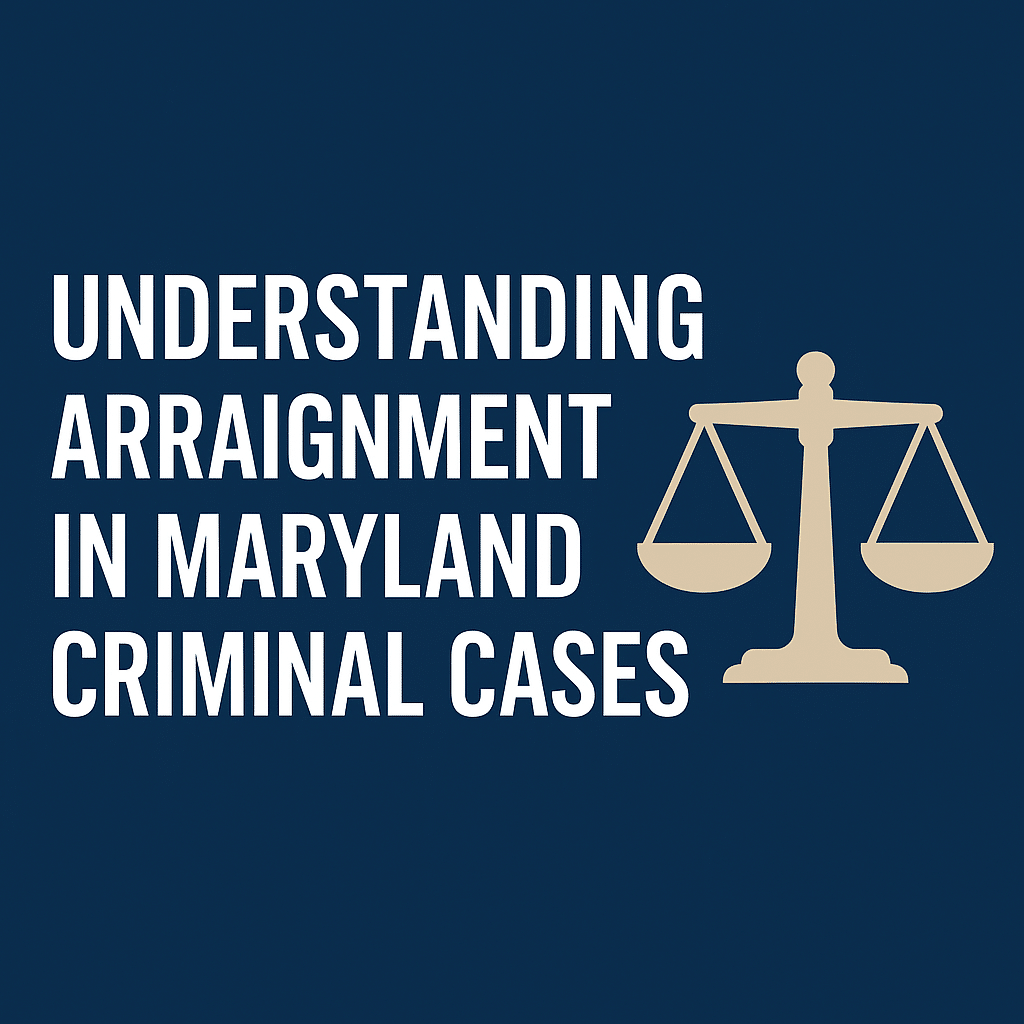
In the Maryland criminal justice system, an arraignment is often the first court appearance after someone has been charged with a crime. It plays a key role in the criminal procedure, setting the stage for the legal process that follows. Below, we break down what happens at an arraignment, what rights are involved, and what to expect if you or a loved one is facing criminal charges in Maryland.
What is an arraignment?
An arraignment is a formal arraignment hearing where the defendant appears before a judge in criminal court to hear the charges filed against them. This is a foundational step in the criminal procedure, ensuring the accused understands what crimes they’re being charged with and what their legal options are going forward.
What happens at an arraignment?
During this initial court process, the judge performs several important tasks:
- Informs the defendant of the specific charges
- Advises the defendant of their right to counsel and other constitutional protections
- Asks the defendant to enter a legal plea
- Determines bail or sets other pretrial release conditions
- Schedules the next hearing
This hearing helps ensure a fair and efficient path through the criminal court system.
Can you go to jail at an arraignment?
Usually, no. Defendants are not taken into custody at arraignment unless there’s a significant change in circumstances. For example, if the prosecutor presents new information—such as recent criminal conduct, a new flight risk, or a violation of prior conditions of release—the judge may decide to revoke bail or impose detention. Otherwise, most individuals who were previously released remain free while awaiting trial.
What are the possible pleas a defendant can enter at arraignment?
At arraignment, a defendant may enter one of the following legal pleas:
- Guilty plea – admitting to the charges
- Not guilty plea – denying the charges and requesting a trial
- No contest (nolo contendere) – not admitting guilt but not disputing the charges
In some cases, a plea bargain may be discussed later in the case. Entering a plea helps shape the course of the criminal defense strategy.
Does the judge set bail at an arraignment?
Yes. One purpose of the arraignment is to determine whether the defendant should be released before trial. The judge evaluates factors such as flight risk and the seriousness of the charges to decide on:
- Release on personal recognizance
- Monetary bail
- Other conditions of release (e.g., check-ins, GPS monitoring)
This bail hearing helps protect the community while ensuring the defendant appears in court.
Can a lawyer be appointed at arraignment if the defendant can’t afford one?
Yes. If the defendant cannot afford legal representation, the court will appoint a public defender or provide access to legal aid services. Under the Sixth Amendment, individuals have the right to counsel, and Maryland’s indigent defense programs ensure that right is protected. The judge may ask financial questions to determine eligibility for appointed counsel.
Is the next court date set during the arraignment?
Typically, yes. At the end of the arraignment, the judge sets the next key date on the criminal case timeline—whether it’s a preliminary hearing, trial date, or motion hearing. This information is recorded in the court docket and formalized through a scheduling order.
What rights are explained to a defendant at arraignment?
The judge reviews several important rights with the defendant, including:
- The right to remain silent and avoid self-incrimination
- The right to an attorney, even if they can’t afford one
- The right to a fair trial
- Other due process protections guaranteed by law
These rights align with those listed in the Miranda rights and are a crucial part of ensuring a fair process.
Final Thoughts
Although it may seem routine, the arraignment is a critical step in the Maryland criminal justice system. It protects the rights of the accused, defines how the case will proceed, and may determine whether someone remains in jail or returns home. If you’re facing charges in Maryland, having experienced legal counsel can make all the difference at arraignment and beyond.
Southern Maryland Criminal Defense helps clients in Prince George’s, Charles, St. Mary’s, and Calvert counties navigate every phase of the criminal process. Contact us today for a confidential consultation and let us fight to protect your rights.
